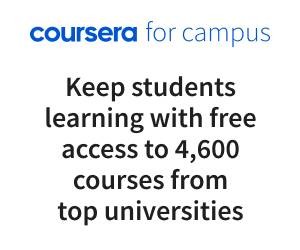How technological innovation is driving new approaches to teaching, with curricula designed around industry skills and social impact
The inevitability of the Fourth Industrial Revolution does not diminish the great uncertainty that comes with such a society-wide technological transformation. Technologists can predict how new digital services will change the workplace, and the skills required to thrive in it, but the pace of this evolutionary change can confound our expectations. This leaves higher education with a considerable challenge: how can the 21st-century university prepare its students?
At the THE Unbounded Universities event, hosted by Times Higher Education in partnership with Coursera for Campus, leading voices from the Asia-Pacific region’s higher education sector discussed the opportunities that digital transformation present for their cohorts, and the challenges in designing a curriculum that remains relevant against a backdrop of constant change.
Patcharee Lertrit, dean of the Faculty of Graduate Studies at Mahidol University, said today’s higher education leaders needed a gift for forecasting to ensure the education provided today would still be relevant for the workplace in five years.
“I am dealing with postgrad students,” said Dr Lertrit. “It would take about two years for the student to finish; we have to predict what another two or three years might look like so that we can prepare them. We have to broaden our students’ minds to accept all the changes they will face.”
For higher education, this challenge verges on the existential. Those institutions that lack the ability to evolve and harness the transformative power of new digital services will be left behind.
“There is a need for us to see how we are going to be relevant,” said Raja Singham, managing director at Brickfields Asia College. “Darwin put it very clearly: it wasn’t the strongest or the most intelligent species [that survived] but the one most adaptable to change.”
Change, however, does not come easily. Mr Singham said that prior to the Covid-19 pandemic, making the case for the expansion of digital learning had been a hard sell among his colleagues. Although the college had run free education platforms since 2014, it was not until April 2020 that the numbers increased dramatically.
The Covid-19 pandemic changed the world, but it did so by accelerating existing trends. It brought digitalisation forward. “We had 47 million learners who came directly to Coursera.org at the beginning of 2020. During the pandemic, we grew by another 30 million to 77 million,” said Jeff Maggioncalda, CEO of Coursera. “We are actually [now] at 82 million learners.”
Mr Maggioncalda cited a World Economic Forum report which said that 84 per cent of companies surveyed planned to accelerate their move towards digital, the cloud and artificial intelligence, creating a spike in demand for skills in those areas. “There is a big premium in the workplace towards digitisation and the skills associated with that,” he added.
Sandeep Sancheti, provost and vice-chancellor of Marwadi University, said that despite India’s position as an IT superpower, its education system had been slow to incorporate new technologies. Again, the pandemic quashed such timidity, and India’s National Education Policy 2020 and Academic Bank of Credit programmes had embedded a new level of flexibility into the way students learned and acquired skills over their academic careers.
The next step, he said, was transforming examinations. “Technology has a beauty that makes the entire education delivery unbounded,” said Dr Sancheti. “India is fully experimenting with that and some of us are very keenly driving it.”
As curricula are being redrafted, universities have an opportunity to prioritise social impact. Mr Singham said it was crucial to teach values. He believes the UN’s 17 Sustainable Development Goals should be built into courses, with students trained to be “socially good entrepreneurs” capable of tackling society’s problems head on.
Watch the session on demand above or on the THE Connect YouTube channel.
Find out more about Coursera for Campus.










































































